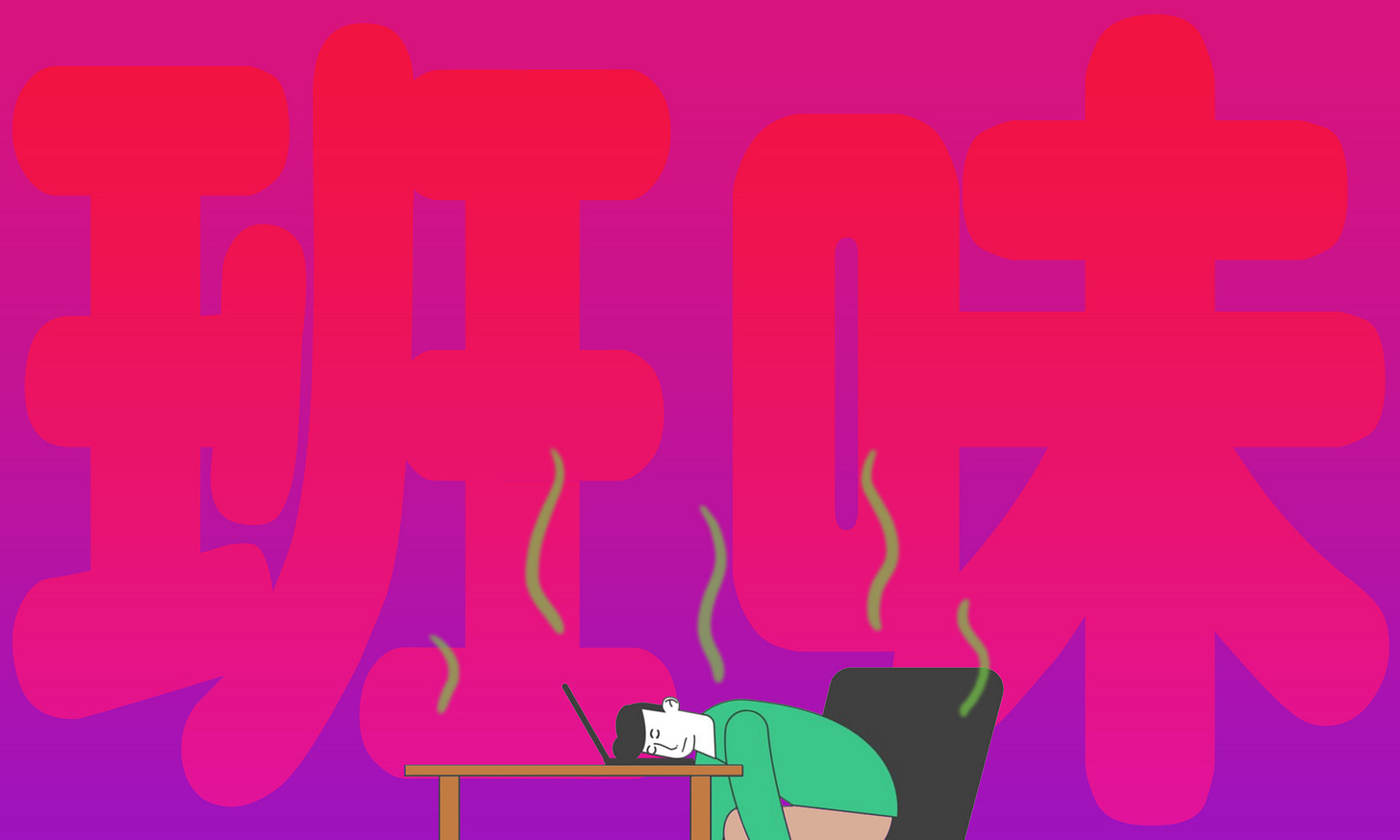"Work odour" — Phrase of the Week
China’s favourite internet slang of 2024 according to four year-end lists of popular buzzwords

Our phrase of the week is: "work odour" (班味 bān wèi)
Context
As 2024 winds down, several "Top Ten Buzzwords of the Year" lists have emerged in China.
On December 2, Yaowen Jiaozi (咬文嚼字) released its widely recognized "official" list; shortly after, on December 12, Language and Character Weekly (语言文字周报) and the National Language Resources Monitoring and Research Center, shared their selections of top trending words of ‘24; finally, on December 18, business outlet 36Kr featured New Weekly’s (新周刊) compilation of 33 internet slang terms from the year.
There is some overlap among the four lists.
But there’s only one phrase which appears on all four lists, which is why we have chosen it as our Phrase of the Week:
He’s been working overtime lately and reeks of the work odour—he's completely drained.
他最近经常加班,感觉整个人都弥漫着班味,完全没有活力。
Tā zuìjìn jīngcháng jiābān, gǎnjué zhěnggè rén dōu mímànzhe bānwèi, wánquán méiyǒu huólì.
And with that, we have our Sinica Phrase of the Week!
What it means
“Work odour” is composed of two parts: "office" or "work" (班 bān), and "odour" or "smell" (味 wèi).
It describes the sense of exhaustion after a long day at work.
This phrase originated from a trending topic on Weibo from March this year, "Once you've taken a job, it will change how you look" (一旦上过班,你的气质就变了 yí dàn shàng guò bān, nǐ de qìzhì jiù biàn le).
Since then, the term "work odour" (班味 bān wèi) has gained popularity, sparking conversations among workers who humorously confess they can’t shake off this "smell." This reflects the reality for many young Chinese, who endure grueling schedules—often working six days a week—leaving them exhausted, expressionless, and unkempt.
Its popularity has given rise to an industry dedicated to teaching people how to "remove their work odour" (去班味 qù bān wèi).
The self-deprecating tone behind the phrase has a similar ring to another popular phrase this year, and one of our favourites: "workhorse" (牛马).
The prominence of these two phrases in 2024 gives a deeper insight into one of the key themes which people are discussing this year: wellbeing in the workplace, and striving—often unsuccessfully—for work-life balance.
Andrew Methven is the author of RealTime Mandarin, a resource to help you learn contemporary Chinese in context, and stay on top of the latest language trends in China.
Read more about how this story is being discussed in the Chinese media in this week’s RealTime Mandarin.



